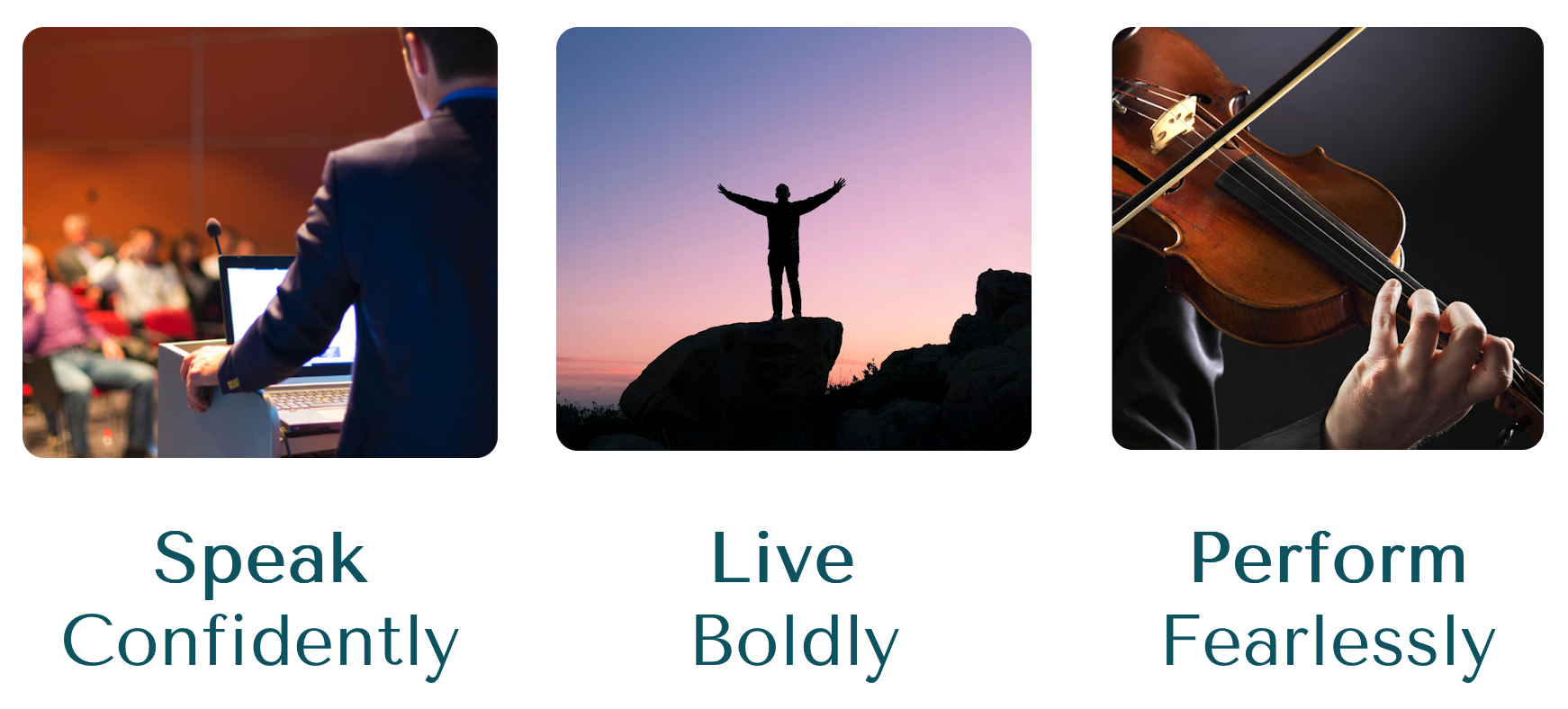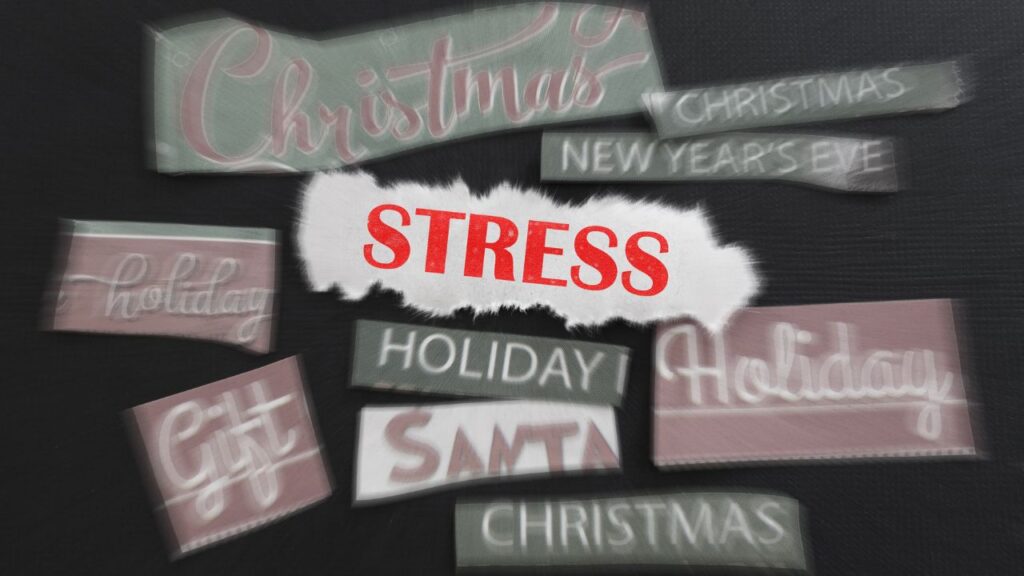
Are You Ready to
Become Fearless and
Confident in Your Life?
Become Fearless and
Confident in Your Life?

You can maximize your performance in pressure situations and eliminate the anxiety and fear that cripples your self-confidence and keeps you from achieving your full potential in Business, Performing and Life
Whether you are a business professional, performing artist, entrepreneur or creative, I am here to help you:
- Overcome anxiety, self doubt and fear when speaking in public, interviewing, auditioning or performing in pressure situations.
- Gain self-confidence and the mental and physical skills necessary to perform in ways that up until now seemed impossible.
- Grow your business, move up the ladder at work, give effective and powerful presentations and perform without anxiety on stage.
- Create powerful focus, concentration and presence while creating as a writer, performer or artist.
Hello, I’m Dr. Nick Lazaris, Performance Psychologist and Anxiety Coach, and I can show you that it IS possible to perform, create and live without the self-destructive beliefs and behaviors that keep you from achieving your goals! If you desire to rid yourself forever of the fears that hold you back, while becoming fearless, bold, and confident, then you have come to the right place.
Through powerful online Individual Coaching, Group Coaching Programs, and unique learning Resources I offer support and psychological skills training to help you unleash your peak potential and performance!
If you are ready to take your performance, art, business, and life to a new level, then let’s have a conversation to discuss how I can help you move beyond anxiety and self-doubt to achieve what you are absolutely capable of ~ let’s talk!
Speak Like No One’s Watching!

Public speaking or performing can be both exciting and nerve-wracking. While engaging with an audience is important, focusing too much on their reactions can be distracting and take away from your ability to deliver an authentic and effective speech. Here’s how you can stay present in the moment and confidently deliver your message without getting caught up in audience responses.
1. Re-frame Your Mindset
Instead of viewing your presentation as a performance that needs approval, see it as a conversation or an opportunity to share valuable insights. Your role is to deliver your message, not to control how every audience member reacts. When you shift your focus from seeking validation to serving your audience, you naturally become more present.
2. Trust Your Preparation
Confidence comes from preparation. The more you rehearse your speech, the more comfortable you’ll feel delivering it. When you know your content thoroughly, you reduce the need to gauge audience reactions for reassurance. Instead, you can focus on delivering your message with clarity and conviction.
3. Develop a Pre-Speaking Ritual
A pre-speech routine can help you center yourself before stepping on stage. This could include deep breathing exercises, visualization, affirmations, or stretching. These rituals can help calm your nerves and shift your focus from external reactions to internal confidence.
4. Engage in Mindfulness Techniques
Mindfulness helps you stay present and fully engaged in the moment. Simple techniques like focusing on your breath, feeling the ground beneath your feet, or taking a brief pause before speaking can keep you grounded. If you notice yourself getting distracted by audience reactions, gently bring your focus back to your speech.
Overcome Self-Consciousness as a Speaker or Performer

As I worked on overcoming my stage fright many years ago, one of the most challenging issues was my self-consciousness and self-doubt. It was only when I shifted this mindset to one of focusing on authentically expressing myself did my fear of public speaking begin to diminish.This is the same shift that I have used in my coaching practice to help thousands overcome their fears. Here are 10 tips to help you on your journey to becoming a more fearless speaker or performer:
1. Focus on Your Message, Not Yourself
Instead of worrying about how you look or sound, concentrate on what you are sharing. Ask yourself, “What do I want my audience to feel, learn, or experience?” Shifting your focus to your message helps take the pressure off yourself.
2. Re-frame Nervousness as Excitement
Your body’s response to anxiety (racing heart, adrenaline rush) is the same as excitement. Instead of thinking, “I’m so nervous,” tell yourself, “I’m excited to share this!” This mental shift transforms fear into energy.
3. Use Movement to Channel Energy
Self-consciousness often makes you stiff. Instead of freezing up, use natural movement—walk, gesture, or express through your body. Movement helps release nervous tension and makes your performance feel more engaging and dynamic.
4. Connect with Your Material Emotionally
Whether you’re giving a speech, singing, or acting, deeply connect with your content. When you feel something, your audience will too. Perform as if you’re speaking to one person who truly needs to hear your message.
Step Into the Spotlight – It’s Time to Dance!

“Many
people die with their music still in them. Why is this so? Too often it
is because they are always getting ready to live. Before they know it,
time runs out.” ~ Oliver Wendell Holmes
- Do you dream of presenting or performing without fear but get stuck in “What if” thinking?
- Do you hold back from taking bold steps because of what others might think?
- Do you find yourself always preparing but never fully stepping out?
If you answered “Yes” to any of these questions, you’re not alone. So many speakers and performers—public speakers, actors, dancers, singers, comedians—struggle with the fear of looking foolish, making mistakes, or being judged. I’ve been there myself.
Let me tell you a story.
The Night I Learned to Dance
It was during my Doctoral Internship at a hospital in Georgia when a group of nurses and interns invited me out for the evening. After a long, draining day, I thought, Why not? A little dinner and laughter sounded like just what I needed.
But when we pulled up to one of the hottest dance clubs in the city, panic set in. You see, I had never danced before. Sure, I’d done a little Greek dancing at family weddings, but a packed nightclub with pulsating disco music? No way.
My overthinking had always “protected” me from looking ridiculous on a dance floor.
There was no escape. No car to leave in. No way out.
10 Tips to Make This Your Best Year Yet as a Public Speaker

As we begin the journey into the New Year, it is an ideal time to re-focus your attention on taking charge of becoming a more effective and productive speaker. Here are 10 tips to make this your best year yet.
1. Know Your Audience Deeply
Understand your audience’s needs, preferences, and concerns. Use surveys, feedback, or research to tailor your message to resonate with them.
2. Master Storytelling
People connect with stories more than information and data. Create compelling narratives that highlight key points and evoke emotion to leave a lasting impact.
3. Focus on Authenticity
Audiences crave authenticity. Share personal anecdotes, speak from the heart, and let your unique personality shine through.
Overcome Your Anxiety of Being on Camera

These days, video content is everywhere – virtual meetings, online presentations, vlogs, social media stories – you name it. But let’s be honest: being in front of the camera can feel super intimidating.
You might feel awkward, overly critical of how you look or sound, or just unsure of what to do. The good news? You’re not stuck with this anxiety. With a few mindset shifts and some practice, you can go from dreading the camera to feeling comfortable (and maybe even enjoying it).
Here’s how to start overcoming your camera anxiety:
1. Understand Where the Fear Comes From
First, ask yourself: What’s making you nervous? Are you worried about looking or sounding awkward? Do you think people will judge you? Are you afraid of making mistakes? Pinpointing the root of your anxiety can make it easier to address. For example, If you’re worried about judgment, remind yourself that most people are too busy thinking about themselves to critique you.
2. It’s All About Mindset
Instead of seeing the camera as a source of stress, think of it as a way to connect with others. Whether you’re sharing a message, capturing a memory, or simply showing up for a meeting, the camera is your tool for communication. Shift your focus from “How do I look?” to “What do I want to share?”
From Fraud to Fearless: Overcoming Imposter Syndrome

Have you ever felt like you’re not good enough, even when all the evidence says otherwise? Like you’re just waiting for someone to figure out you’re a fraud?
If that sounds familiar, you’re not alone. What you’re feeling might be imposter syndrome – a sneaky mindset that can hold you back from fully embracing your success.
In my coaching work, I’ve found imposter syndrome to be one of the biggest barriers to reaching your full potential, whether it’s at work, in a creative endeavor, or in life overall. So, I want to talk about what imposter syndrome really is, how it can impact you, and most importantly, how to break free from it to unlock your best self.
What is imposter syndrome, really?
Think
about this: You give a well-received presentation, crush a big project,
or create something you’re truly proud of. But instead of celebrating,
you catch yourself wondering, “Did I really deserve this?” You might chalk it up to luck or assume people are overestimating you.
That’s imposter syndrome – feeling like you’re faking it and fearing you’ll be found out, even when you’ve clearly earned your achievements.
Stop Letting Stress & Anxiety Steal Your Holiday Joy – Part 2

The Holiday Season is a time for joy! Yet, this can be a most difficult time of the year for many. Stress, pressure, loneliness, expectations, depression, hurts and financial burdens rob many of the joy of the season.
With Christmas seeming to come earlier each year (ornaments on sale in July!) and the mad rush of traffic and the scramble to buy the ‘perfect’ gifts, the “Happy Holidays” often turn out to be anything other than joyful or happy!
It has been said that “we are in danger of losing Christmas.” This is even true for those who are faith-based who, in the rush of things, lose that “glad feeling of happiness and delight” that should be at the center of the holidays.
The challenge is that in order to handle the unique pressure and stresses that accompany this time of year, we need to maintain a ‘balanced life.”
Problems that occur in our desire to experience joy are when our “whole being” is out of balance.
Let’s take a quick look at some very practical steps that we can take towards putting the joy back into Christmas:
1) Prepare Your Physical Self for the Holidays
~ Eat wisely – importance of healthful, nourishing foods (although a very hard time to diet!)
~ Rest appropriately – set boundaries on shopping, visiting and decorating – give your body time to refresh itself!
~ Exercise – “not something you spend time doing, but rather something you invest time in”
~ Strive for ‘Stress-Free’ living – Give yourself permission to slow down and enjoy yourself; practice positive self-talk; avoid comparing yourself to others; see yourself as a valuable child of God; give yourself permission to take risks
2. Evaluate Your Soul (Your emotional/relational self)
